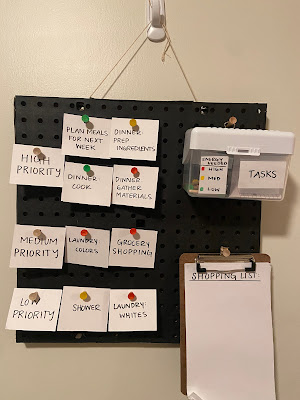Neuro Notes: "My Father's Brain"
In today's Neuro Notes, we discuss a daughter's love for her father and the impact of the Parkinson's diagnosis on the ones you love.
I love my dad. We are two peas in a pod to the point where we annoy almost anyone within our close vicinity. When I think about these neurodegenerative diseases, I can't help but imagine what it would be like to find out someone I loved received the same news. I chose to discuss and share this recording, "My Father's Brain" by Amanda Bunch because in order to try to understand Parkinson's through her eyes. The eyes of a daughter who loves her father and the brain of someone committed to science, both of which I can relate to.
In this recording, Amanda Bunch describes her relationship with her father. Her dad is a lively man who loves music, playing guitar, and regularly throwing parties. In 2008, at the age of 47, he was diagnosed with Parkinson's, and their worlds changed. Amanda struggled to cope with the changes this meant for her father and their relationship. Throughout high school, she watched her dad's life begin to change. Playing the guitar became difficult. He started to shuffle and drag his feet as he walked, and the live concerts that used to bring excitement now caused tremors. The parties that used to bring him joy now made his symptoms worse. She noticed the impact of his diagnosis on his most beloved occupations, which made her angry.
She used this passion and commitment to her father to inspire her research at Columbia, where she worked with neurosurgeons and stem cell biologists to investigate cell replacement therapy for the treatment of a variety of neurodegenerative disorders like Parkinson's. Stem cell replacement therapy is still currently being researched as a possible treatment for Parkinson's disorder. Because of stem cells' ability to differentiate into all cell types and self-replicate, scientists are attempting to turn stem cells into dopamine-producing cells, replacing the dying cells in people with Parkinson's disease. There is still a lot of research before this treatment moves into clinical trials, but it is an exciting prospect.
During this time in college, Amanda's dad lost his job as his symptoms worsened. The medication he was taking wasn't as effective anymore, showing that her dad was progressing to more severe stages of the disease. Six years after his diagnosis at 53, Amanda saw her father at her graduation and was shocked to see just how far his disease had progressed. He was now using a wheelchair and suffering from dyskinesia (involuntary, writhing movements caused by Parkinson's disease medication), dystonia (muscle stiffening), and significant tremors. Shocked by this, Amanda convinced her father to get deep brain stimulation therapy, which after 3 months, allowed her father to walk, run, and even play the guitar again! Although this drastically improved his ability to participate in his occupations on a physical level, it had no impact on his cognitive decline.
Amanda continues to research these cognitive declines through the use of fMRI.
Amanda and her father's story shows just how big of an effect Parkinson's can have on one's ability to participate in their chosen occupations. The beautiful thing is while Amanda grieved this, her father never lost his positivity. He continued to make jokes, call his daughter, and attempt to do the things he loved, even if it was difficult. Even when his symptoms inhibited his ability to walk and talk, this hope encouraged his daughter to research treatment options. This eventually led to a massive recovery in his abilities and a drastic improvement in his life satisfaction.
As future occupational therapists, I believe we must try and empathize with the experience of our clients and their families. To do this, we must listen to the stories that have been shared with us, like Amanda's. I would recommend this to anyone interested in Parkinson's and understanding how this diagnosis can affect a family.
You can listen to this fantastic story by following the second link below:
Resources:
Association, E. P. D. (n.d.). Stem Cell (cell replacement) therapy. Stem cell (cell replacement) therapy | European Parkinson's Disease Association. Retrieved July 20, 2022, from https://www.epda.eu.com/living-well/therapies/surgical-treatments/stem-cell-cell-replacement-therapy/
Barker, E., & Buch, A. (2021, February 6). Amanda Buch: My father's brain. The Story Collider. Retrieved July 20, 2022, from https://www.storycollider.org/stories/2016/12/2/amanda-buch-my-fathers-brain

Comments
Post a Comment